25:26
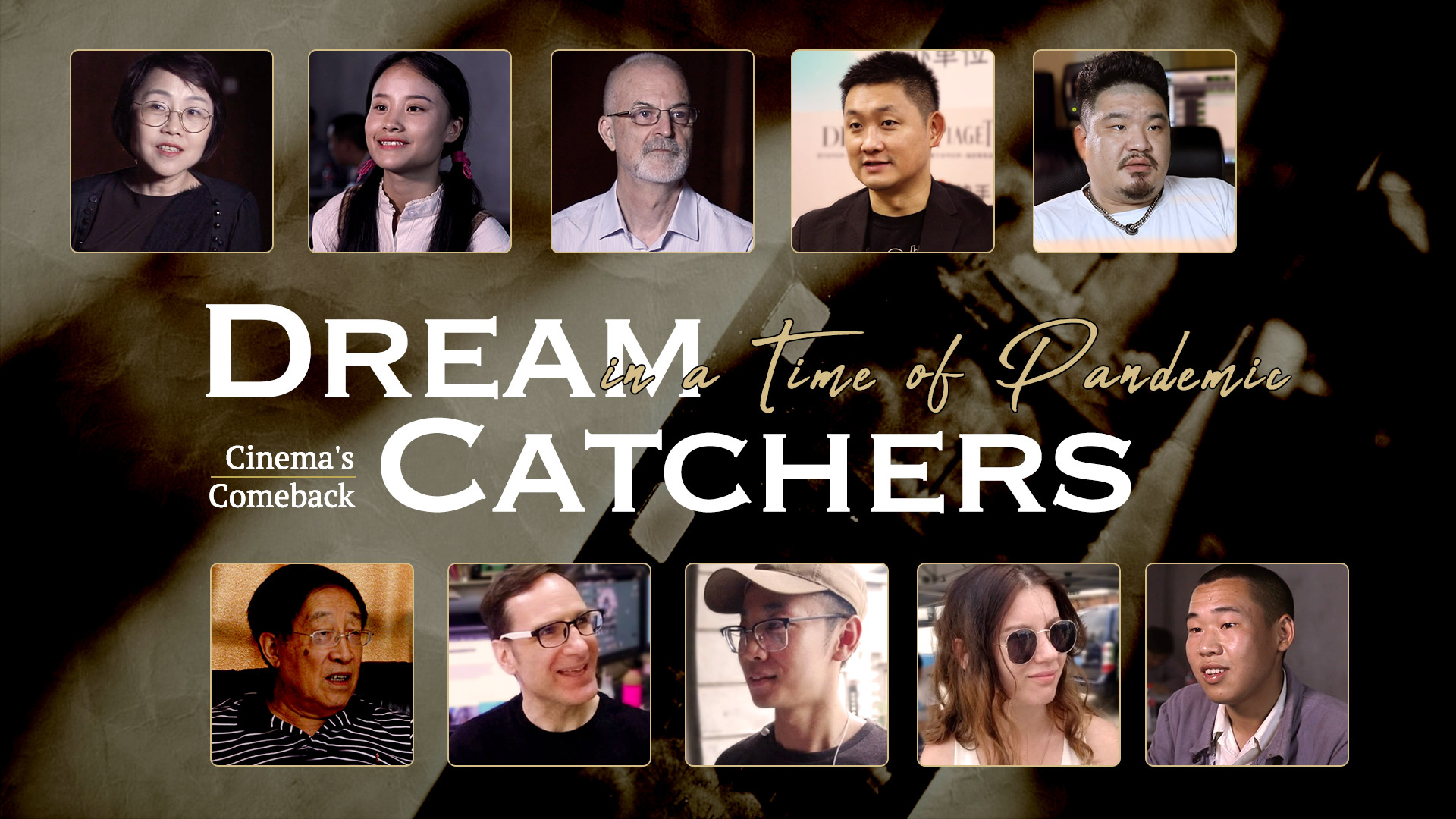
Films are like dreams, weaved by light and shadows. They allow people to escape their daily routines and get immersed in a world of imagination. The creation of this dreamworld requires the efforts of tens of thousands of people in the industry, which has witnessed some dark days during the COVID-19 epidemic, with cinemas closed and filming suspended.
What does the epidemicic mean for the insiders? How hais c affected the Chinese film industry? Will everyone manage to power through it, and how? With all these questions in mind, CGTN set sails for the 23rd Shanghai International Film Festival (SIFF), where the movie world is rising from a forced slumber.
The China Film Administration (CFA) announced on July 16 that cinemas could reopen from July 20 with prevention measures in place. Until then, the Chinese cinemas had remained closed for 179 days. On the same day, SIFF said their postponed annual event would start on July 25 as the first film festival in China to be held offline since the outbreak of COVID-19.
In this context, we approached some industry insiders for their views on the festival amidst the epidemic to get an idea of the larger picture of the industry.
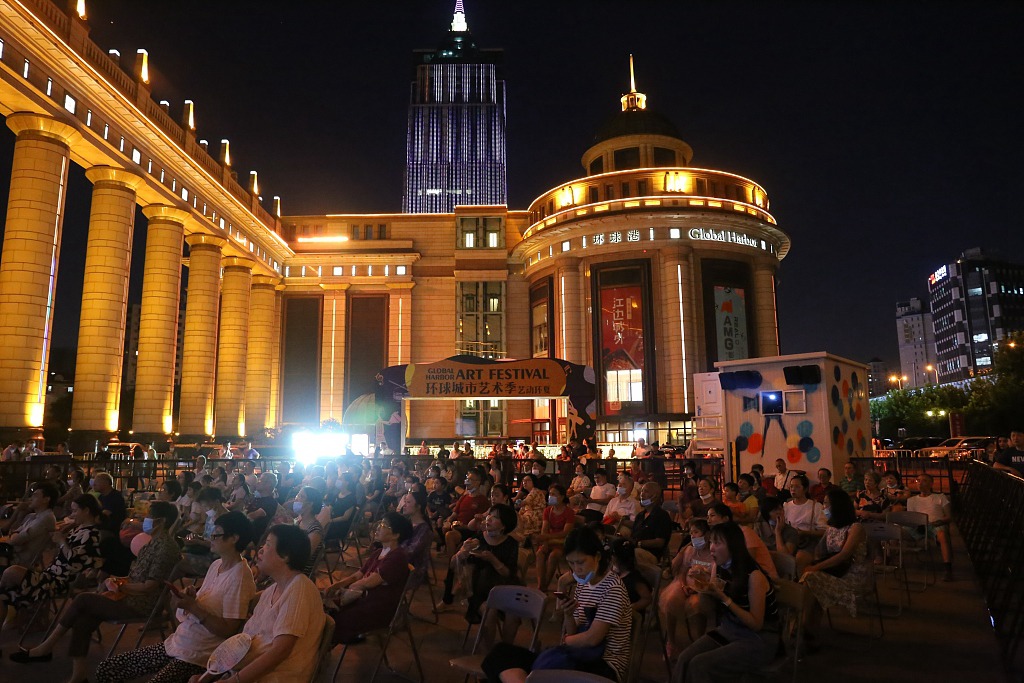
Audience watch a film at an open-air theater during the SIFF 2020 in Shanghai, China. /CFP
Audience watch a film at an open-air theater during the SIFF 2020 in Shanghai, China. /CFP
Talking about the reopening of cinemas and the SIFF, Jiang Weimin, executive president of Shanghai Vancouver Film School (SHVFS) as well as a film insider and a Shanghai local, said there is a bond between Shanghai and films. "It is destiny," she said.
The school's president Jia Zhangke is a frequent attendee of the SIFF and many graduates started their career in the industry by taking part in the competitions or events held at the SIFF. This year, one of the Masterclass lectures in the short video category were held at their lecture halls.
They are not the only ones connected with SIFF.
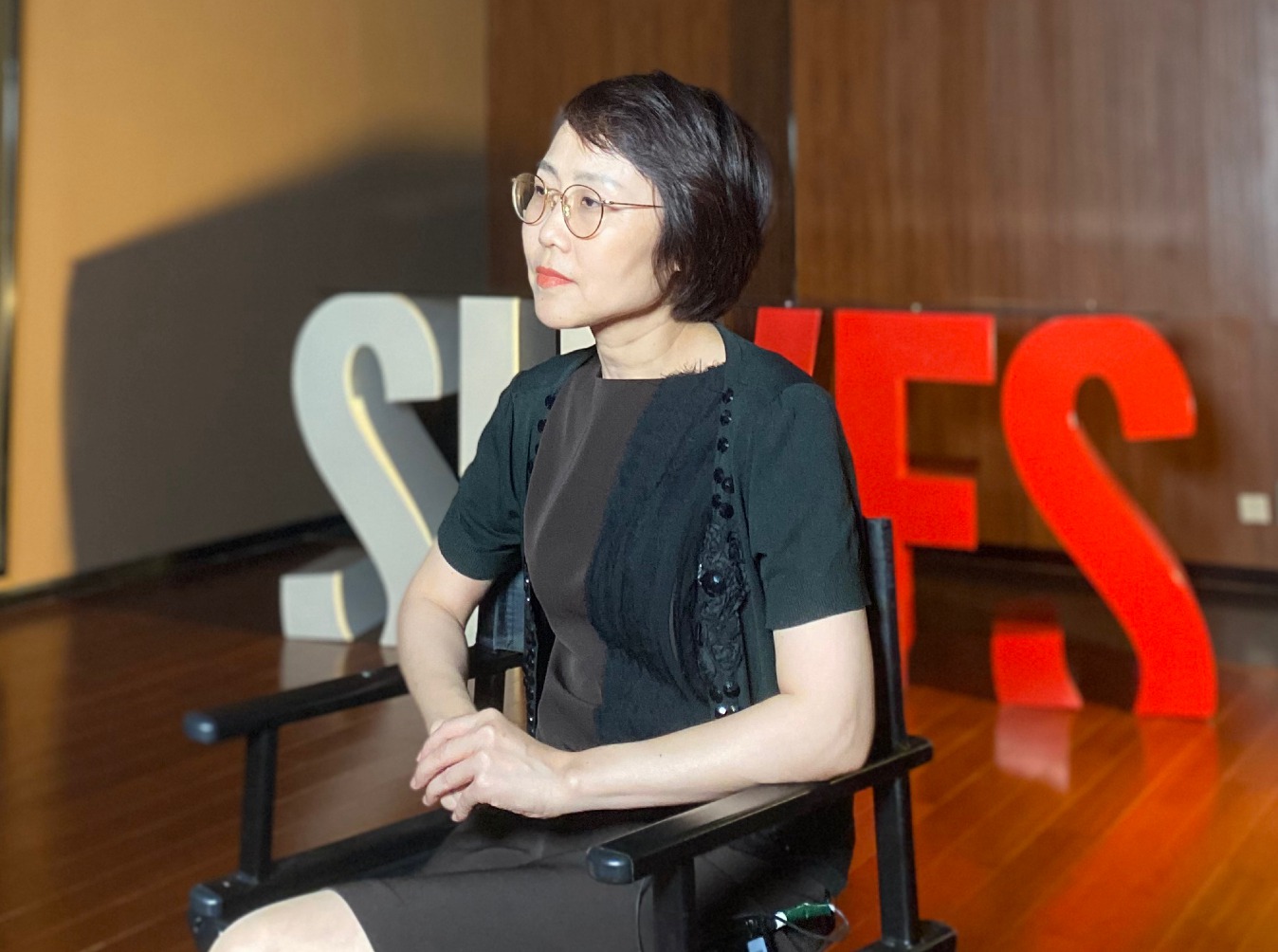
Jiang Weimin, executive president of Shanghai Vancouver Film School (SHVFS), during an interview. /CGTN
Jiang Weimin, executive president of Shanghai Vancouver Film School (SHVFS), during an interview. /CGTN
Wang Jiayan has been working with the SIFF since the very beginning in 1993, and his career with films is even longer. He used to be a cinema manager, and later became the coordinator for the annual festival. He is in charge of matching each of the hundreds of films for screening with the available cinemas, and work out a timetable for each of them. He is famous among the Shanghai film enthusiasts as "Spectacle Wang."
"I've been posting through my Weibo and WeChat, worrying about it, and people always said 'Why are you worried, it's none of your business.' After all, I worked in cinemas for many years," Wang said. "I was really sad when cinemas were closed," said Wang.
He said this year's SIFF was one of the three editions which impressed him the most, the other two being the first SIFF in 1993, which he could recount every detail about even today, and the one in 2003, which was canceled because of the SARS outbreak.
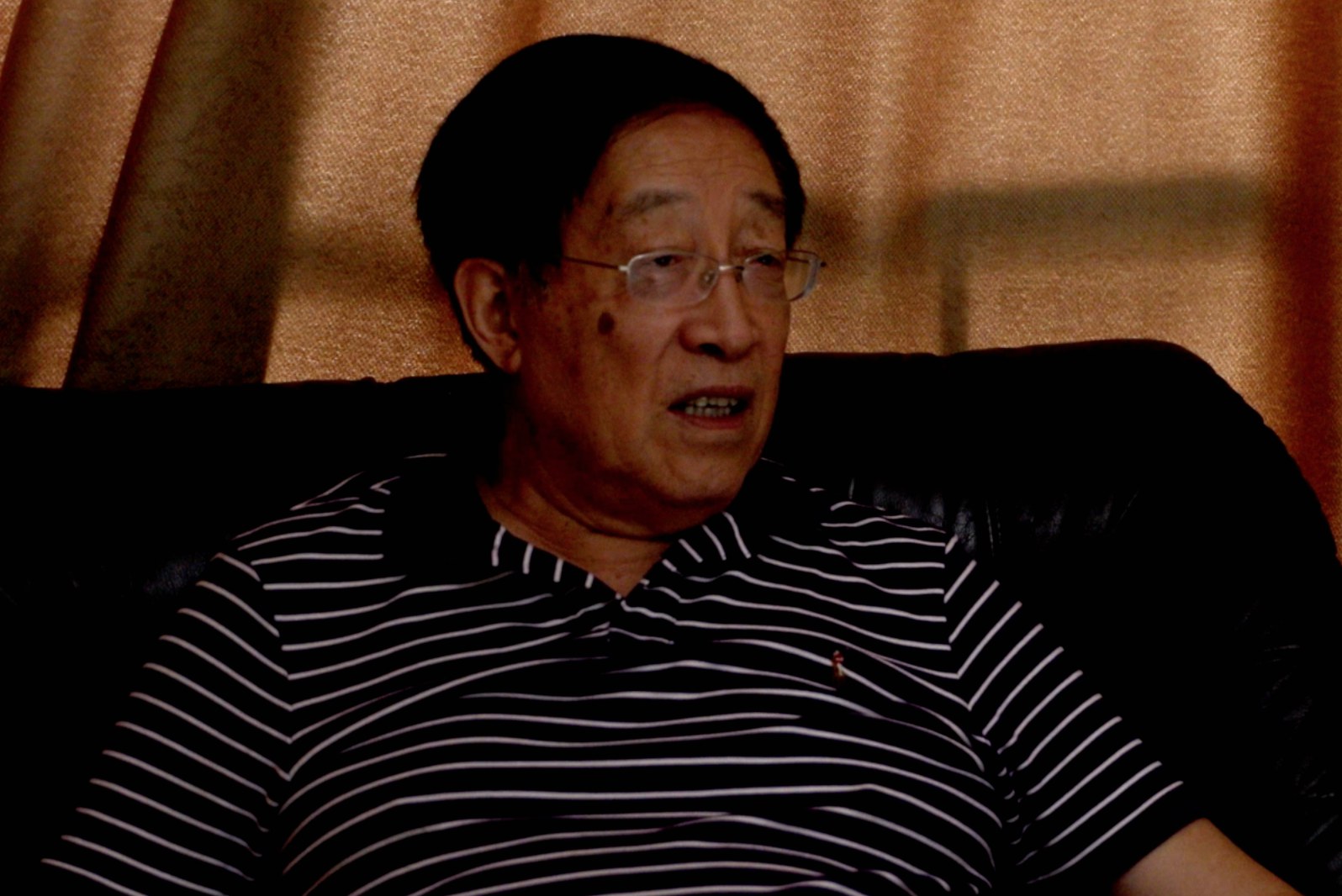
Wang Jiayan is talking about the first SIFF. /CGTN
Wang Jiayan is talking about the first SIFF. /CGTN
Many foreigners, such as Kirokazu Koreeda, could participate in the 23rd SIFF only through online video calls.
But there are also some film insiders who went through the epidemic in China. Shawn Patrick Tilling is one of them. He is now the head of 3D animation and visual effect department at the SHVFS. While expecting to find out how the pandemic impacted the life and work of the filmmakers, what Tilling told us was completely the opposite.
"We adapt to it very quickly and very well," he said, without any trace of frustration or discomfort at all with the online lessons – the only possible way of allowing the students to continue their studies during the pandemic," said Tilling.
He showed us how his work goes on with online lessons and confirmed with us that as a netizen, he enjoys online lessons even more than the ones in the classrooms, because talking directly to the camera makes him feel closer to the students.
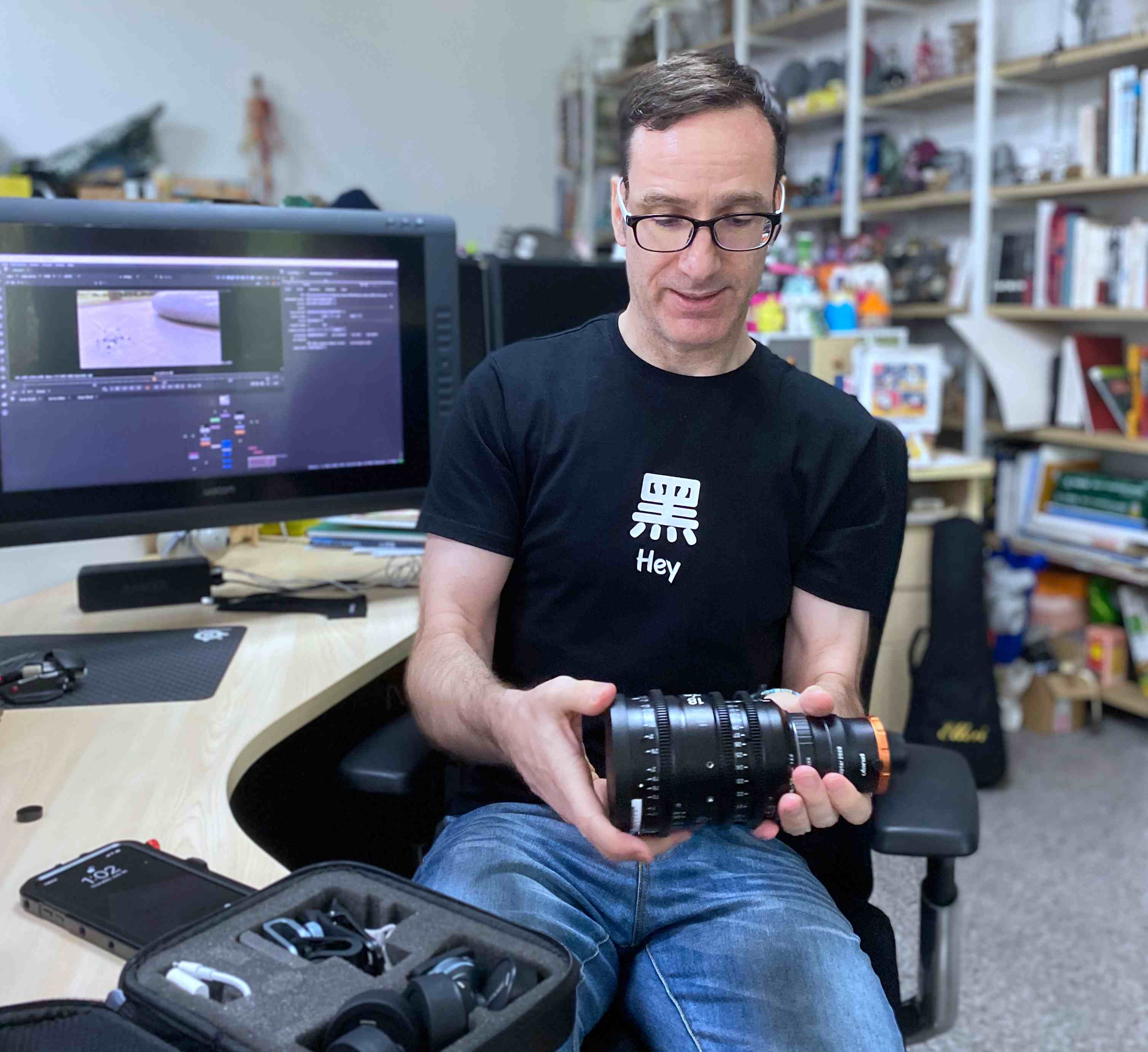
Shawn Patrick Tilling is showing how to make a film with cellphone. /CGTN
Shawn Patrick Tilling is showing how to make a film with cellphone. /CGTN
Peter D. Marshall is also among those who prefer to see the light in dark times. Marshall has been working in the film and television industry for more than 35 years and now teaches film direction at the SHVFS. He said that while thinking about the impact of the pandemic on the film industry, instead of worrying about the cinemas closing down, he prefers to see how films could record and reflect on the pandemic.
And he is not so concerned about the losses suffered by the industry, because "stories never die out."
"Stories are always transitioned, and right now we are in visual media – 20, 30, 40 or 50 years from now, who knows… But we will always have stories," he said.
Filming in the time of pandemic
CGTN also visited two film studios in Shanghai's Songjiang District: the Shanghai Film Park in Chedun Township and Shanghai Yancang Filming Base, both renowned for their settings of 1920s-1940s Shanghai sceneries.
At Yancang Filming Base, the cast and crew of a television series "The Justice" were filming an important scene in one of the studios decorated to project a hall from the 1920s era in Shanghai.
Yang Zhenling, executive producer of the TV series, said the filming started on June 16, after months of preparation. The planning of the series started at the end of 2019, and they original planned to start shooting in April. However, COVID-19 had disturbed the whole plan.
Yet, Yang said they were the lucky ones. "At least the project started after the pandemic, instead of before it," said Yang, who added that there were several crews who had their projects completely disturbed by the pandemic.
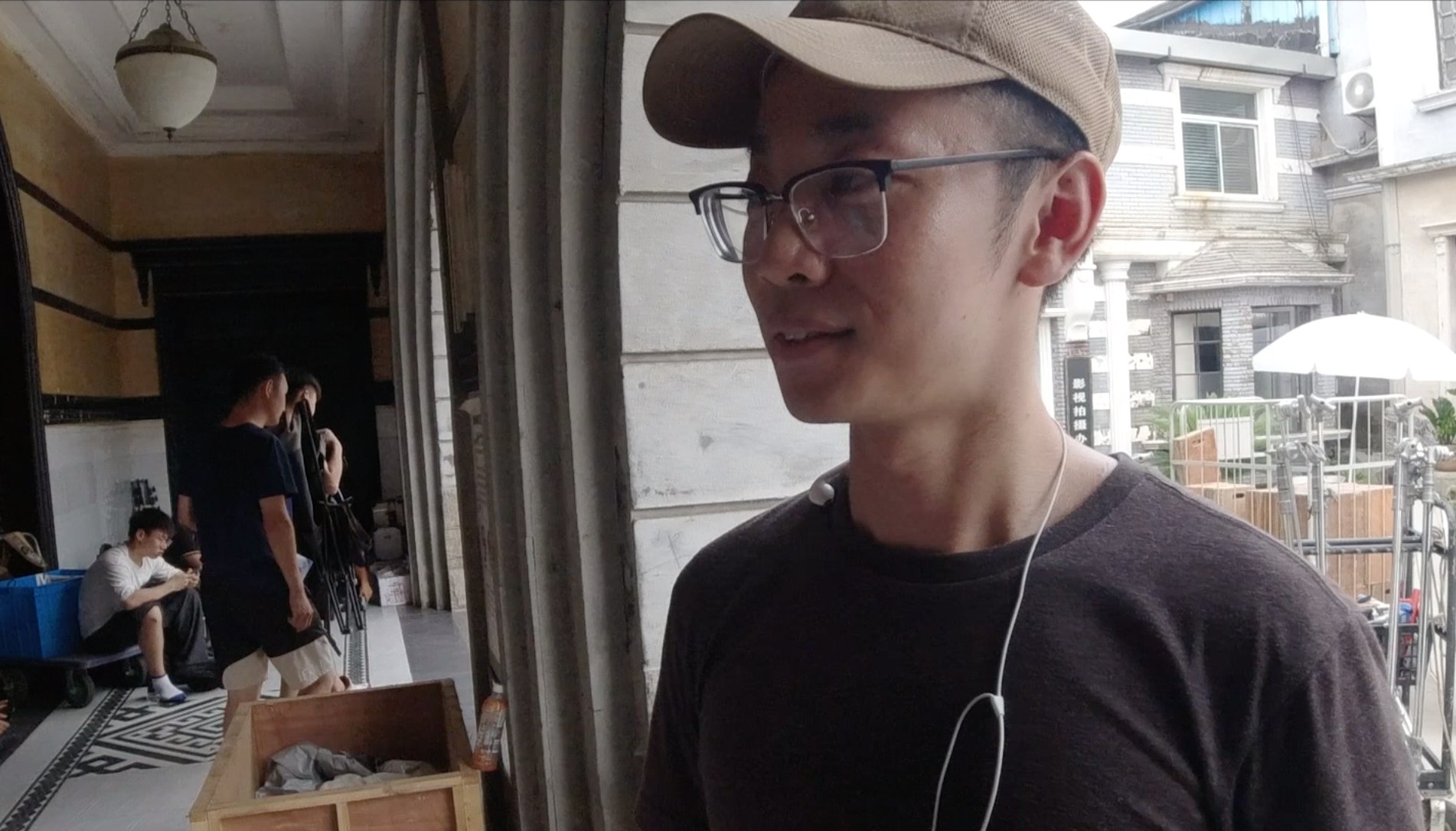
Yang Zhenling, executive producer of films and TV series, during an interview. /CGTN
Yang Zhenling, executive producer of films and TV series, during an interview. /CGTN
"The filming bases were closed, and all the work was suspended, and yet they still had to pay salaries to the crew members. And the actors' schedule could also be a problem," Yang said.
Such a project may require about 100 people for filming. Then on the filming day, there are several trucks parked outside the studio, carrying production materials. The film bases have strict requirement for the crews as well.
Yang said all the members of the crew had to undergo nucleic acid testing before getting permission for shooting. In addition, before entering the area, they have to receive temperature tests and scan the QR health code with their cellphones to show that they have not been to areas at high risk of infection or haven't had contact with confirmed cases.
Yang works for Union Pictures, an entertainment company, and mainly focuses on film distribution. As most of the cinemas remained closed before July, the company was inevitably affected economically.
"The bonus cannot be guaranteed," Yang smiled.
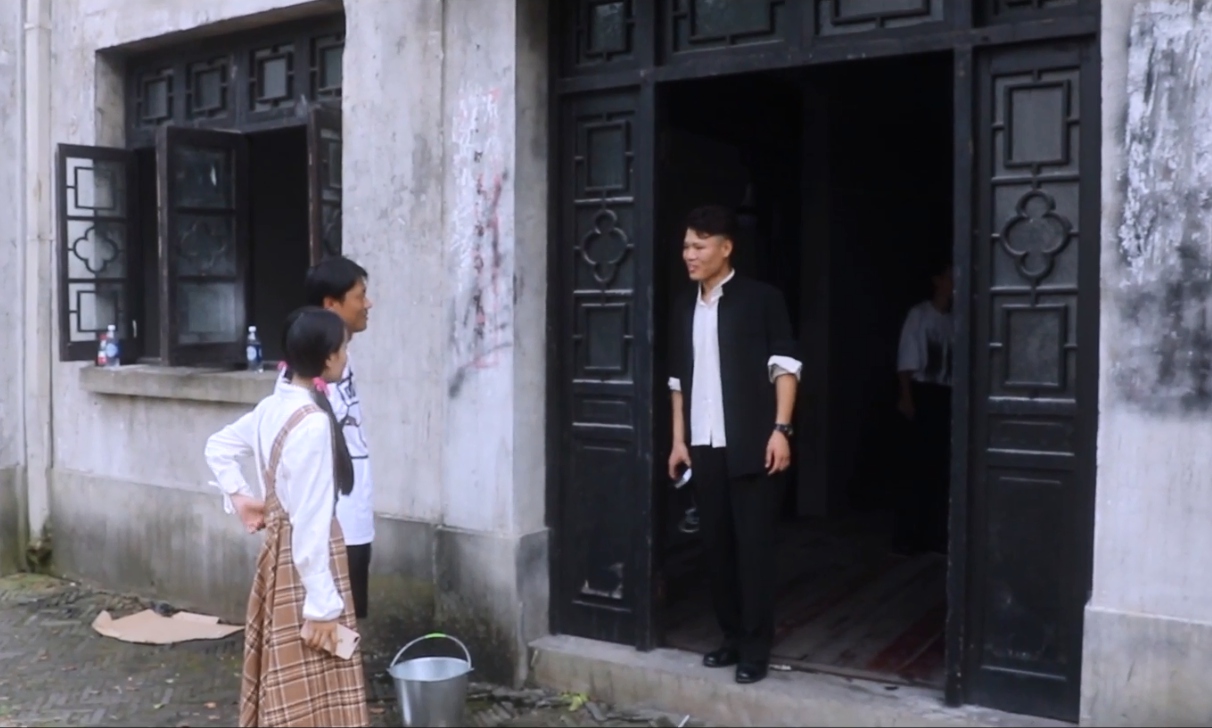
The extra actors are waiting on the site of the filming park. /CGTN
The extra actors are waiting on the site of the filming park. /CGTN
CGTN also met some extras waiting on site for a film in Shanghai Film Park in Chedun. Most of them work in nearby factories or shops, and come for filming on weekends. They are not professional actors, and have no experience in acting either. They usually come here either because they are interested in films or for the money, which is paid on a daily basis. And no doubt, the pandemic has made that pocket money even harder to earn.
"I was in Shanghai from January to March," said 22-year-old Wu Xiaolin, dressed as a student from the 1920s. She works as a salesperson at a cosmetics outlet in Shanghai.
"But there were not so many opportunities for the shooting, because there was no filming at all during that time. The store I worked at was closed as well."
Zhu Maomao, 21, works at a nearby factory. He told us that he came back about a month after the Spring Festival because life in his hometown Shangrao City of Jiangxi Province was "boring."
"There were no obstacles at all when I came back. All we needed to do is scan the QR code," said Zhu. "But the management at the community was strict. I had to ask my landlord to come and help me get the permission."
This was Zhu's first film this year. In the same period last year, he worked in at least five to six films.
Zhu said work opportunities were increasing and he had seen a new film crew recruiting extras a day before, and was ready to get registered.
Returning to Beijing, CGTN met Lyu Chengdao, who has been working in the film industry for seven years.
Lyu has many identities in the sector. He came with the dream of becoming the best audiography director, but now he also works as actor, dubber, audio director and sometimes a singer.
"It is the sound that led me to this field in the first place, and I stayed because of my love for it," he said.
He said he knew many film insiders who had been impacted by the epidemic, especially those who mainly focus on the big screen. However, at the same time, the online films got an opportunity to grow.

Lyu Chengdao, audio director of online films, is driving to his studio in Huairou District, Beijing, China. /CGTN
Lyu Chengdao, audio director of online films, is driving to his studio in Huairou District, Beijing, China. /CGTN
"The internet films used to be equated to rough wrap-ups of bad productions that nobody wants to watch, but now, things are gradually changing," said Lyu. "We used to lack the industrial chain, but now we are catching up."
Lyu said some of his friends left the film industry for good during the pandemic, but some preferred to stay. And those are the ones who love films deeply.
On the way to his studio in Huairou District of Beijing, Lyu said he enjoys the 40-minute drive along the expressway because it stretches into the mountains ahead. It reminds him of freedom and hope.
Last year, the box office of Chinese films stood at 64.2 billion yuan (9.35 billion U.S. dollars), following only behind the U.S. as the second largest film market of the world. Only days before the Spring Festival, the most important traditional event for the Chinese people and the fiercest period for film competition, the outbreak of COVID-19 disrupted everything.
Cinemas across the country were all shut down since the first day of the lunar New Year, and all the films planned for release during the holiday were pulled down. In May, the China Film Administration estimated that the film box office's loss could exceed 30 billion yuan (4.37 billion U.S. dollars).
Now, with cinemas reopening, the confidence has been rebuilt as well. The first blockbuster to hit big screens after the pandemic, "The Eight Hundred," directed by Guan Hu, has already grossed over 1.8 billion yuan (262 million U.S. dollars) within 10 days, and more films are expected soon.
Reporter, Scriptwriter: Ai Yan
Photographer, Videographer: Zhang Wanbao
Cover Image Designer: Liu Shaozhen
Project Manager: Zhang Xiaohe
Producer: Si Nan
Supervisor: Zhang Shilei